This weekend, President Donald Trump is expected to nominate a conservative judge to the court, with Judge Amy Coney Barrett of the 7th U.S. Circuit Court of Appeals as the reported front-runner.
USC experts are available to discuss the Supreme Court fight and whether it will galvanize voters who are motivated by issues such as abortion, religious liberty and health care access.
Contact: Jenesse Miller, (213) 810-8554 or jenessem@usc.edu
 “Consider almost any hot-button issue before the court in the last decade — abortion rights, affirmative action, the Affordable Care Act, the constitutionality of the administrative agencies that make up the bulk of the federal government, etc. — and once-settled understandings are suddenly up for grabs,” said Sam Erman, assistant professor of law at the USC Gould School of Law whose research focuses on citizenship, the Constitution, race and legal change.
“Consider almost any hot-button issue before the court in the last decade — abortion rights, affirmative action, the Affordable Care Act, the constitutionality of the administrative agencies that make up the bulk of the federal government, etc. — and once-settled understandings are suddenly up for grabs,” said Sam Erman, assistant professor of law at the USC Gould School of Law whose research focuses on citizenship, the Constitution, race and legal change.
“If federal elections also follow current polls, we may soon see a war between democracy and the judiciary unlike any since the New Deal.”
He added:
- During his 15 years as chief justice, John Roberts has repeatedly provided the decisive vote in controversial cases.
- Trump’s nominee to replace Ginsburg will likely tip the balance of the court in a conservative direction.
Contact: serman@law.usc.edu
SCOTUS fight may help Biden more than Trump
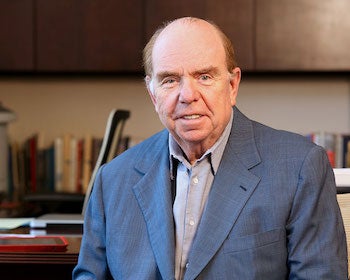 “An issue we haven’t been talking much about in this election is now going to be front and center in this campaign,” said Robert Shrum, the director of the Center for the Political Future at the USC Dornsife College of Letters, Arts and Sciences and a former political strategist and consultant. “There’s no way Trump, with his strongly evangelical base, cannot come up with a conservative choice on all the social issues.”
“An issue we haven’t been talking much about in this election is now going to be front and center in this campaign,” said Robert Shrum, the director of the Center for the Political Future at the USC Dornsife College of Letters, Arts and Sciences and a former political strategist and consultant. “There’s no way Trump, with his strongly evangelical base, cannot come up with a conservative choice on all the social issues.”
He added:
- The fight over a SCOTUS pick doesn’t help Trump make headway with voters. The recent USC Dornsife Daybreak Poll asked voters who they trust more on cabinet and Supreme Court appointments and Joe Biden had an 8-point lead.
- Several swing state senators up for reelection will hurt their chances of victory if they have to vote on Trump’s SCOTUS pick before the election; for example, U.S. Sen. Cory Gardner, R-Colo.
- Senate Majority Leader Mitch McConnell may let the president appoint a conservative choice before the election, but postpone the vote until the lame duck session after the election.
Contact: shrum@usc.edu or (202) 338-1812
Flip-flopping on election-year nominees may not bother voters
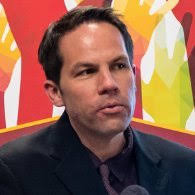 “A number of senators who blocked Obama’s nominee in the last year of his term, including Majority Leader McConnell, are now supporting a swift confirmation under Trump, especially as some fear Trump may lose the election,” said Christian Grose, an associate professor of political science and public policy at USC Dornsife and academic director of the USC Schwarzenegger Institute for State and Global Policy.
“A number of senators who blocked Obama’s nominee in the last year of his term, including Majority Leader McConnell, are now supporting a swift confirmation under Trump, especially as some fear Trump may lose the election,” said Christian Grose, an associate professor of political science and public policy at USC Dornsife and academic director of the USC Schwarzenegger Institute for State and Global Policy.
“This has led to many senators flip-flopping on this issue. This does paint them in a bad light, but research I’ve published in the American Journal of Political Science suggests the negative electoral effect of flip-flopping can be tempered with explanations to voters.”
He added:
- When senators explain their votes and their newfound positions on the Supreme Court appointment during an election year, some voters are persuaded by these explanations.
- Further, voters are inattentive to the ins and outs of everything going on, so while many interested observers are keenly aware of the pending SCOTUS battle, not all voters will be swayed by this issue.
Contact: cgrose@usc.edu
LGBTQ rights could be at risk with a more conservative court
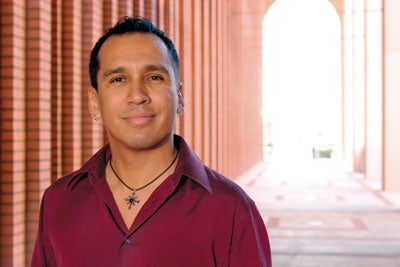 “The shift from more conservative justices occupying five of the seats on the Supreme Court to occupying six means that, in most cases, two of the more conservative justices would have to join the three remaining more liberal justices to rule in a pro-LGBT manner,” said David Cruz, a professor of law at USC Gould and an expert on expert on civil rights, same-sex marriage and the Supreme Court.
“The shift from more conservative justices occupying five of the seats on the Supreme Court to occupying six means that, in most cases, two of the more conservative justices would have to join the three remaining more liberal justices to rule in a pro-LGBT manner,” said David Cruz, a professor of law at USC Gould and an expert on expert on civil rights, same-sex marriage and the Supreme Court.
He explained:
- Although Chief Justice Roberts and Justice Neil Gorsuch joined liberal justices in the sexual orientation and gender identity discrimination opinion the court handed down this past June, that was a statutory case.
- The court could well go a different direction in cases under other statutes or the Constitution.
- Examples include disputes about restroom usage by transgender students or the cases against Trump’s transgender military ban or challenges to restrictions on “conversion therapy.”
Contact: dcruz@law.usc.edu
Religious conservatives hope to see their voice on the court
 “[Judge Amy Coney Barrett] is being [considered] to fulfill a half century campaign to take back the courts, to return religion to the public square, to dismantle a style of secularist constitutional interpretation that religious conservatives find objectionable,” said Nomi Stolzenberg, the Nathan and Lilly Shapell Chair in Law at USC Gould and an expert on law and religion.
“[Judge Amy Coney Barrett] is being [considered] to fulfill a half century campaign to take back the courts, to return religion to the public square, to dismantle a style of secularist constitutional interpretation that religious conservatives find objectionable,” said Nomi Stolzenberg, the Nathan and Lilly Shapell Chair in Law at USC Gould and an expert on law and religion.
“Folks on the opposite side are naturally going to greet her selection with great alarm for that reason.”
In a recent Los Angeles Times opinion piece, she said:
- The Trump administration has made religious liberty and protection from what they consider religious discrimination a top priority, appointing justices, judges and agency heads who adhere to this point of view.
Contact: nstolzenberg@law.usc.edu
The real SCOTUS fight is over Obamacare
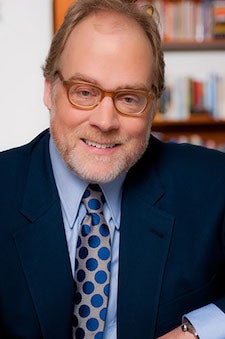 “The potential Supreme Court gamechanger, and where Biden could pick up points, is with non-college educated white women and this fight over pre-existing conditions,” said Mike Murphy, co-director of the USC Dornsife Center for the Political Future. “That’s the Star Wars laser sword and there are a lot of politically dead Republicans from 2018 who will remember how effective that weapon is.”
“The potential Supreme Court gamechanger, and where Biden could pick up points, is with non-college educated white women and this fight over pre-existing conditions,” said Mike Murphy, co-director of the USC Dornsife Center for the Political Future. “That’s the Star Wars laser sword and there are a lot of politically dead Republicans from 2018 who will remember how effective that weapon is.”
He explained:
- The Supreme Court is scheduled to hear challenges to the Affordable Care Act just one week after the presidential election.
- Democrats are preparing to make the threat to healthcare coverage for those with pre-existing condition a major election issue.
- A fight over abortion rights will be part of the conversation, and may energize some of Trump’s base. However, that debate doesn’t motivate suburban voters, which is Trump’s real path to victory.
Contact: cpf@usc.edu
What if the Supreme Court decides the 2020 Election?
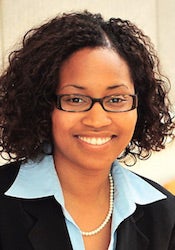 “Refusing to recuse could imperil the legitimacy of the Supreme Court if it issues a 5-4 ruling in favor of the President on an outcome determinative election issue, a la Bush v. Gore — and that majority includes the newest appointee who had been confirmed only days earlier through a rushed and partisan process,” said Franita Tolson, vice dean for faculty and academic affairs and professor of law at USC Gould.
“Refusing to recuse could imperil the legitimacy of the Supreme Court if it issues a 5-4 ruling in favor of the President on an outcome determinative election issue, a la Bush v. Gore — and that majority includes the newest appointee who had been confirmed only days earlier through a rushed and partisan process,” said Franita Tolson, vice dean for faculty and academic affairs and professor of law at USC Gould.
Contact: ftolson@law.usc.edu
Image via Pixabay










